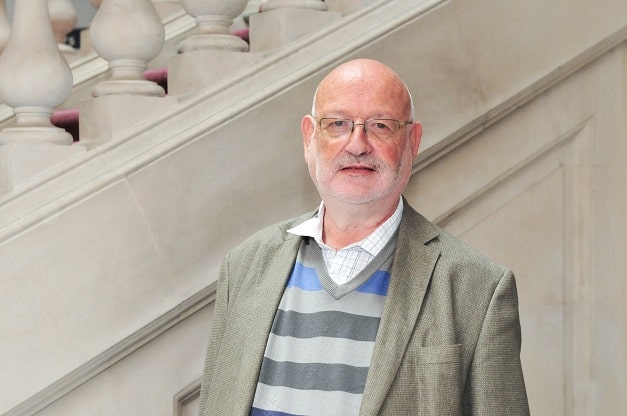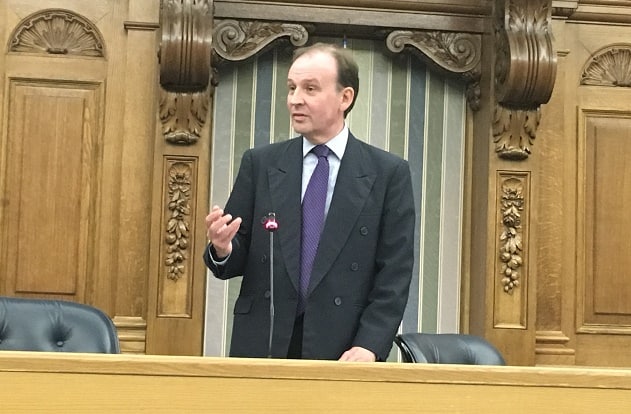
By Local Democracy Reporter Ciaran Duggan
A political row is brewing over Kent County Council’s (KCC) controversial plans to increase council tax by 5% from April.
County Hall’s 81 elected members are due to vote on budget proposals for the next financial year, worth £1.1bn, at a crunch meeting next week.
The Conservative administration has told councillors that the pandemic poses a financial “risk” to the authority as “sustained” lockdowns, three since March, have suppressed demand for services, such as social care and pothole repairs.
KCC’s corporate finance director, Zena Cooke, has warned that precepts will need to rise to the maximum level of 4.99% in a report published earlier today, ahead of the vote, as the council seeks to avoid any cuts to frontline services.
She has told councillors: “Council tax is now the most significant source of funding for our services. Any lesser increase than that proposed would have an adverse impact on the council’s financial resilience.”
However she has admitted that County Hall is not in “imminent danger” of financial failure, but it is feared the authority could face a deficit of up to £163million from 2024, amid the recovery from a lengthy economic recession.
Opposition groups, including Labour, Liberal Democrats and the Greens, who together hold 13 of the total 81 seats, have publicly condemned the proposed 5% tax hike for more than 1.5million residents.
This comes as nearly 70,000 people living in Kent have made benefit claims in the last 12 months, with Medway and Thanet among the worst hit areas, as unemployment is almost double the levels seen in the 2008 financial crash.

Labour member Cllr Barry Lewis, who represents Margate at county level, said: “KCC are treating the people of Kent like a cash machine. They just put their request in and expect money to flow out of people’s banks.”
If approved, the annual KCC council tax bill could increase by £60 for a band C home, rising from £1,200 to £1,260. This makes up around 75% of the total council tax fee, but does not include precepts paid to the police, fire service or district and borough councils.
For D households, the growth would equate to around £67.50. In total, council tax would make up 73% of KCC’s £1.1bn total spending power for the next financial year, £802million, including an extra £37m from the 5% tax hike.

KCC’s main opposition leader Cllr Rob Bird (Lib Dem) said last week: “It is an unfair burden on residents.”
Dissent has also emerged within the backbenches of KCC’s 63-strong Conservative party after former cabinet member, Cllr Gary Cooke (Con) questioned the need to “bolster” general reserves to more adequate levels.

But Conservative executives defended the proposed tax hike. KCC’s leader Roger Gough (Con) said the council’s economic planning was “prudent” and last month warned County Hall cannot rely on more government aid.
County Hall has secured a Whitehall support package of £54m for the next financial year. No further support has been announced beyond April 2022.
A final decision will be made on whether to approve the tax rises at KCC’s decisive budget vote meeting next Thursday from 9.30am.
What does the KCC budget money pay for?
84 children’s centres and early years services
Supporting 1,600 children in care and 1,700 care leavers
Fostering, adoption and 10,000-plus social work cases
Working with 583 schools on places, planning and access
Special educational needs and disability including transport
Apprenticeships, skills and career pathways for young people
Public health and wellbeing services
Sports, arts, culture and heritage
Highways, waste management and concessionary travel
Active travel, public rights of way and country parks
Ninety-nine libraries, mobile libraries and archives
Community safety, emergency planning and trading standards
Registration and coroners’ services
Economic development and strategic planning
Support for 4,900 adults with learning disabilities
Permanent residential care placements for 4,100 people
Support for 3,200 social care clients with mental health needs
Support for 1,200 older people in nursing care homes
For 7,000 people receiving care and support at home
Support for 5,300 adults with physical disability and sensory needs
And for 2,400 people using day care services in their community

